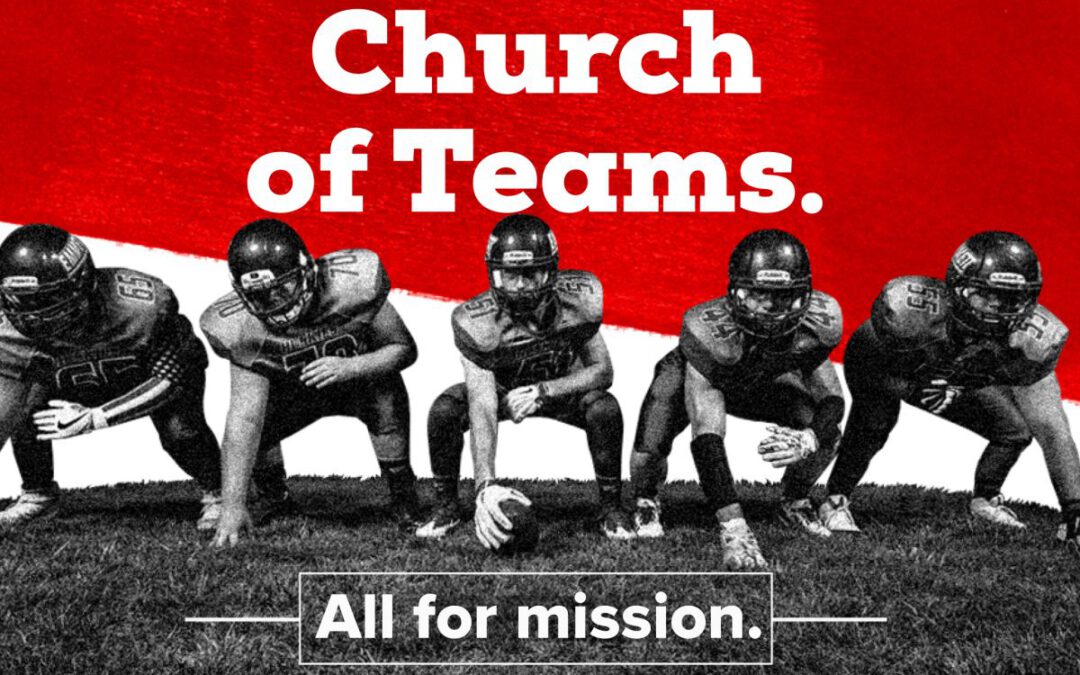I’ve participated in churches of all sizes, from small “house churches” meeting in the homes of followers of Jesus to large churches with thousands of people gathering at a “campus,” not to mention other churches ranging across the spectrum of attendance.
A few years ago I started to learn that though there were a lot of things these different churches had in common, the reality was that churches of different sizes have different cultures, challenges, and opportunities. One of the most helpful documents I have ever read, and what has helped many church leaders, is Tim Keller’s “Leadership and Church Size Dynamics: How Strategy Changes with Growth.” You simply must read it if you have not, especially if you want to better understand the necessary developmental changes that have to happen in order for a church to continue growing by making disciples who make disciples who… you get the idea.
Changing Our Understanding of Change.
Our church has jumped through four to five size “cultures” in less than two years. Organizational health experts suggest that for every 15-25% growth that you experience, all of your processes and systems that enable your ministries to be effectively carried out must also change. Yikes! That means that every couple of months we’ve had to change things that we just got comfortable doing! This has been just slightly maddening for everyone involved. And by “slightly” I mean, “Help, we’re going crazy!”
Why? Because change is hard, difficult, annoying, scary, frustrating, all of the above… not to mention a lot of hard work. Change requires patience and trust and commitment and sensitivity and, well, so much work!
But I also think that sometimes our assumptions about change are what might need… ummm… to change. We often view change as losing control and get frustrated because we sometimes feel like it’s being forced on us. But what if change is the necessary step required for our own health, growth, and longevity? What if change, our ability to be flexible as we adapt through the new seasons God brings our way, is essential to our future? As Tod Bolsinger notes, “we will learn that if we can adapt and adventure, we can thrive.”
In today’s world, “efficiency remains important, but the ability to adapt to complexity and continual change has become an imperative,” observes General Stanley McChrystal in Team of Teams. We might not like change, but change is both inevitable and an, for the trained eye, an opportunity. We can either accept and embrace it or we can fight it and become dysfunctional and irrelevant. We can’t do both.
This is why changing our perspective on change is so important for a complex organization like a church that serves over five hundred people from a vast spectrum of ages, ethnicities, and socio-economic backgrounds. We have to change in order to further our mission of communicating the unchanging truth of Jesus and his kingdom. See, not everything has to change 🙂
A Church of Teams
For our church to carry out our mission of knowing Jesus and making him known, we have to catch a vision of seeing every single human being in Red Bluff as an object of God’s love and invited to partner with the Holy Spirit for the cause of Christ’s kingdom. Our city will not be won for Christ or experience the widespread transformation we hope for simply due to the missional work of a handful of people, though that is indeed how movements begin. Transformative movements continue to expand because more and more people respond to God’s invitation and begin “doing the stuff,” as John Wimber used to say.
So to think about the Vineyard’s future, we need to think about our church being a church of teams — everyone gets to “play” and everyone’s participation matters. We can’t think of the church in terms of a handful of people or a primary leader; rather, we need to have a vision for numerous teams focused on the mission at hand.
This means that the common “churchy” assumption that only people who have been around for a long time, have the Bible memorized, and who know all of the right answers can serve in leadership or as part of a team is a huge problem. Why? Because this is actually unbiblical. Throughout the Gospels we read stories of people meeting Jesus and immediately beginning to tell others, which the Gospel writers actually point out. For example, the woman at the well in John 4 has an encounter with Jesus and then goes to her village and tells everyone about Jesus. But wait… she had only had one conversation with Jesus… and she didn’t even have a Bible (full disclosure, the New Testament hadn’t been written yet). This naturally raises a key question: just how long do you need to know Jesus before you can begin sharing, serving, or telling others?
So at the Vineyard, we are inviting people to grow as much as they can as they serve on teams. Our spirituality is built on the reality that we are all works in progress and that the process of becoming like Jesus takes place over the course of our lives; we simultaneously grow while we also serve!
Jesus promised that he would build his Church and I believe he will. One of the ways that we can participate in Jesus’ work is to have an eye toward sustainability and excellence, both which are achievable if we continue to be a church of teams!
- What do you think?
- Where do you see yourself engaging in the Vineyard?
- What are you most passionate about and what type of a team could you see yourself serving with?
- How do you resist change and why?
Leave a comment below!

